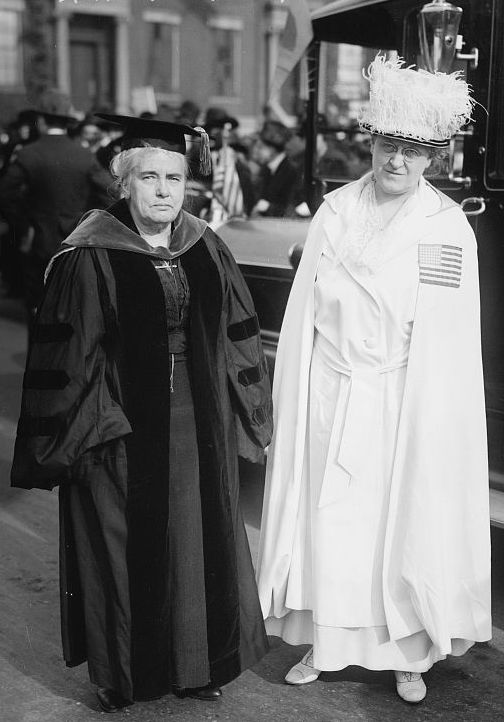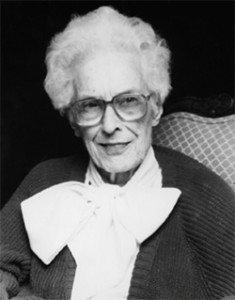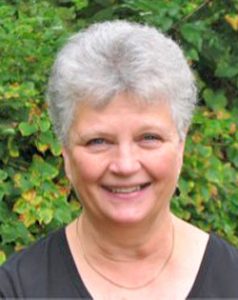
“To get the word ‘male’ in effect out of the Constitution cost the women of the country 52 years of pauseless campaign… During that time they were forced to conduct 56 campaigns of referenda to male voters; 480 campaigns to get Legislatures to submit suffrage amendments to voters; 47 campaigns to get State constitutional conventions to write woman suffrage into state constitutions; 277 campaigns to get State party conventions to include woman suffrage planks in party platforms, and 19 campaigns with 19 successive Congresses.”
~ Carrie Chapman Catt
A Timeline
| May 1914 | Anne Dallas Dudley leads the first Parade for Women’s Voting in the South and is the first woman in Tennessee to make an open-air speech. She leads a march of 2,000 women from downtown Nashville to Centennial Park. |
| November 1914 | Anne Dallas Dudley brings the national convention of the National American Women’s Association to Nashville. The heated debate ends with a resolution to support the Susan B. Anthony Amendment by “every means within its power.” |
| 1915 | Anne Dallas Dudley is elected to head the Tennessee Equal Suffrage Association and helps to introduce and lobby for a suffrage amendment to the state constitution. Over 80 local suffrage chapters are organized in the state. |
| May 1915 | The Tennessee General Assembly takes the first step in the amendment process by adopting a joint resolution favoring it. The resolution would have to pass again in 1917 and then be approved by a majority of voters before it could become law. |
| 1916 | May Day Marches for women’s suffrage in Nashville are held annually from 1914 to 1920 from the Capitol to Centennial Park. |
| 1916 | Woodrow Wilson promises that the Democratic Party Platform will endorse women’s suffrage. |
| 1917 | Anne Dallas Dudley is elected vice president of the National American Women’s Association. She works closely with President Carrie Chapman Catt in planning the master strategies of the campaign that finally succeeded in 1920. |
| 1917 | The Tennessee House of Representative passes a limited suffrage bill that would have granted women the right to vote in local elections and for U.S. president. The Senate votes it down. |
| 1918 | The U.S. House of Representatives passes with a 2/3 vote to enfranchise women, but loses by two votes in the Senate. |
| 1919 | For a third time, the U.S. House of Representatives votes to enfranchise women. The Senate finally passes the Nineteenth Amendment, and suffragists begin their ratification campaign. |
| April 5, 1919 | Tennessee General Assembly passes a limited suffrage act to give women the right to vote in presidential and municipal elections. |
| April 22, 1919 | Mary Cordelia Beasley Hudson of Camden, TN is the first woman in Tennessee to vote. |
| June 4, 1919 | The 66th U.S. Congress passes the 19th amendment. It then needs ¾ of the state legislatures to ratify in order to become law. |
| February 14, 1920 | The League of Women Voters formed. |
| August 9, 1920 | Tennessee Governor A.H. Roberts convenes a special legislative session. |
| August 18, 1920 | The Tennessee legislature becomes the 36th and final state to ratify the 19th amendment. The 19th Amendment becomes law. |
Revitalized in 1948
After the 19th Amendment passed in 1920, the League of Women Voters in Nashville lost momentum and remained dormant until the remarkable Molly Todd came to town in the 1940’s and resuscitated the organization in 1948. Under her leadership, the LWVN mobilized support for a host of public policy issues ranging from birth control to the formation of a family service agency to racial integration. The League published the city’s first brochure on voter education, worked to abolish the poll tax, and engaged in efforts to consolidate city and county government services.
Re-energized by a new generation of women leaders, the organization continues to address the pressing public policy issues raised in each generation.

The Nashville League Receives the E. Bronson Ingram Award
April 20, 2017 – The LWVN is is proud to receive the E. Bronson Ingram Award by PENCIL for their support of Nashville’s public schools. PENCIL links community resources to Metro Nashville Public Schools.
Past and Current LWVN Presidents
LWVN presidents can serve for three sequential two-year terms. The current president is Madeline Garr (2020-22).
1948-1950 | Molly Todd
1950-1952 | Martha Wigginton
1952-1954 | Jean Schwartz
1954-1956 | Coletta Tesch
1956-1957 | Georgia Benjamin
1957-1958 | Mary Hobbs
1958 | Helen Dingley
1958-1962 | Sebby Billig
1962-1965 | Barbara Kuhn
1965-1966 | Betsy Zukoski
1966 | Geralyn Clewe
1966-1968 | Sally Levine
1968-1970 | Miriam Cowden
1970-1971 | Gale Markus
1971-1974 | Mary Wade
1974-1975 | Barbara Housewright
1975-1978 | Jane Entrekin
1978 | Margaret Manning
1978-1979 | Silvine Hudson
1979-1982 | Roz McGee
1982-1983 | Juli Mosley
1983-1984 | Barbara Mann
1984-1986 | Gayle Ray
1986-1988 | Susan Gutow
1988-1990 | Carol Bucy
1990-1992 | Peggy Maguire
1992-1994 | Mary Frances Lyle
1994-1996 | Suzie Tolmie
1996-1998 | Brenda Wynn
1998-2000 | Margie Parsley
2000-2002 | Marian Ott
2002-2003 | Luvenia Butler
2003-2005 | Deana Claiborne & Karen Edwards
2005-2006 | Karen Edwards
2006-2007 | Karen Edwards & Margie Parsley
2007-2008 | Margie Parsley
2008-2010 | Lucy Chism
2010-2012 | Jo Singer
2012-2018 | Debby Gould
2018-2020| Barbara Gay


